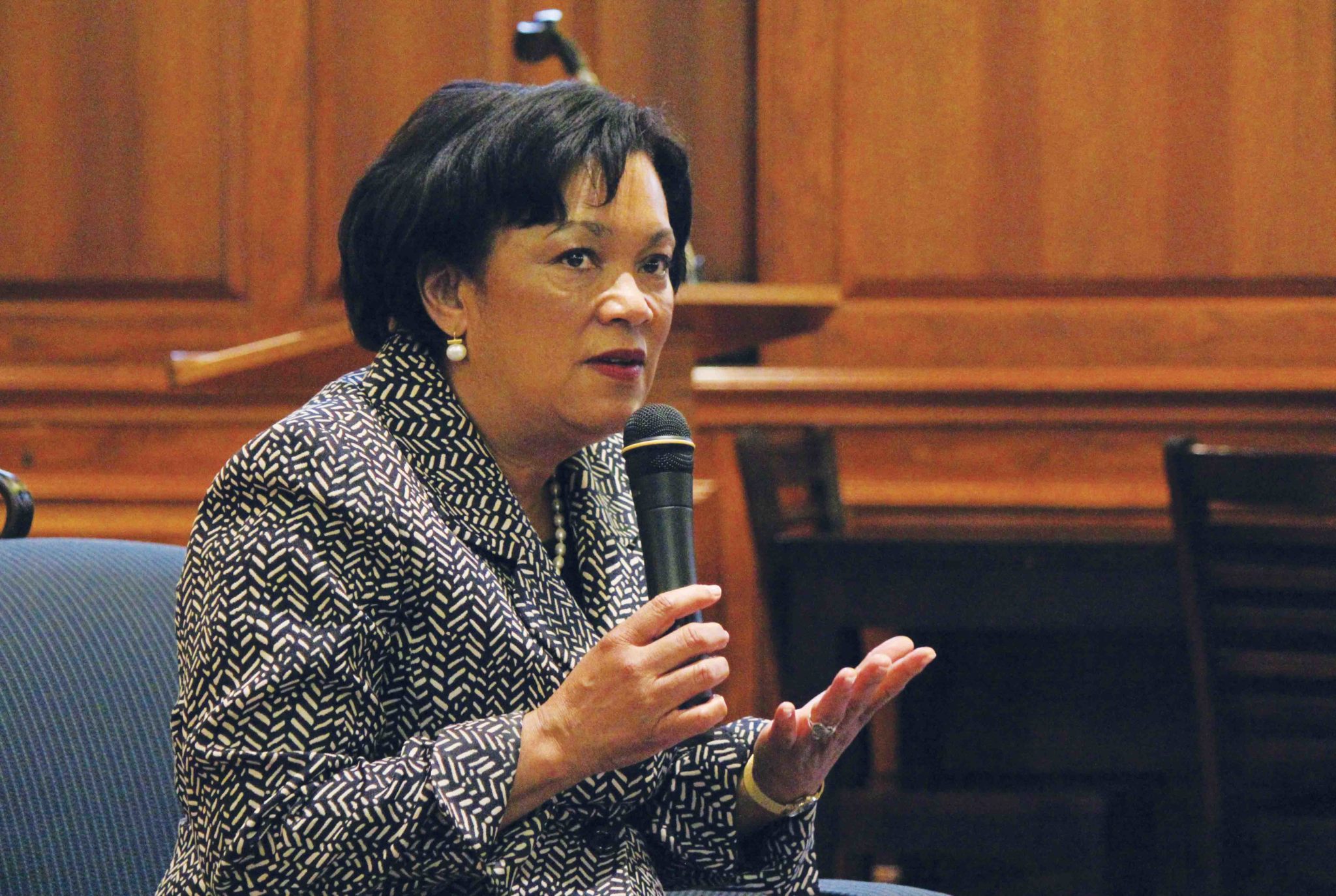
This month, New Haven Mayor Toni Harp announced an executive order strengthening protections for undocumented immigrants in the City.
Among other constraints, the Aug. 14 directive limits the ability of city employees to inquire into individuals’ immigration status, share individuals’ status with any federal or state officials or conduct immigration arrests.
In her announcement, Harp emphasized the positive role immigrants play in New Haven. She said that the Elm City will continue to be a welcoming and inviting place for all residents.
“Mayor Harp believes no undocumented person in New Haven should be afraid to be here,” mayoral spokesman Laurence Grotheer told the News on Thursday. “Conversely, with this Executive Order, New Haven is opening its arms even wider to make new residents feel welcome, accepted and at home.”
City employees are now not only barred from asking any resident about their immigration status unless required under federal or state law, but are also forbidden to disclose the status of an individual without their consent. The order prohibits police officers, security guards and school resource officers from asking crime victims about their immigration status or detaining any resident based on their undocumented status.
Before Harp’s announcement, New Haven already had policies in place to protect undocumented immigrants, although none as broad as the recent decree. In 2006, the City’s police chief signed an order prohibiting law enforcement officers from asking questions about immigration status. One year later, New Haven introduced the Elm City Resident Card, which allows all residents to obtain an ID issued by the government, regardless of immigration status.
Although the order received praise from local immigrant rights organizations, activists and Harp see the move as temporary and plan to craft more permanent legislation protecting undocumented immigrants. The next mayor could unilaterally overturn Harp’s executive order. But if the Board of Alders passes a bill similar in content to Harp’s, the Order’s provisions would be stamped into law, and the majority of the legislative body’s members would have to vote in favor of overturning it.
“[The executive order] extends and strengthens protections already on the books. Harp, to her credit, issued an executive order which is like a temporary measure until the Board of Alders acts and extends it to all city employees, which updates and modernizes the police order,” said Michael Wishnie, a Yale Law School professor who is part of a clinic that represents Unidad Latina en Acción, or ULA, a grassroots immigrant rights organization. “She intends it as a temporary measure. That is totally appropriate.”
Ward 1 Alder Hacibey Catalbasoglu worked with ULA and Harp’s office over the summer to help create the executive order. Catalbasoglu is continuing to meet with other Alders to craft a bill to strengthen the protections temporarily provided in Harp’s order. In an interview with the News, Catalbasoglu said that he would like to see concrete legislation come to fruition before the end of the calendar year.
“What’s most important is codifying it because the executive order is a good order,” said Wishnie. “Things that could be improved are at the margins. It is a significant step forward.”
According to WNPR, it was estimated that there were about 14,400 undocumented immigrants living in New Haven in 2015.
Emmett Shell | emmett.shell@yale.edu







